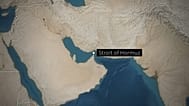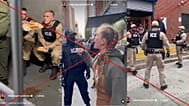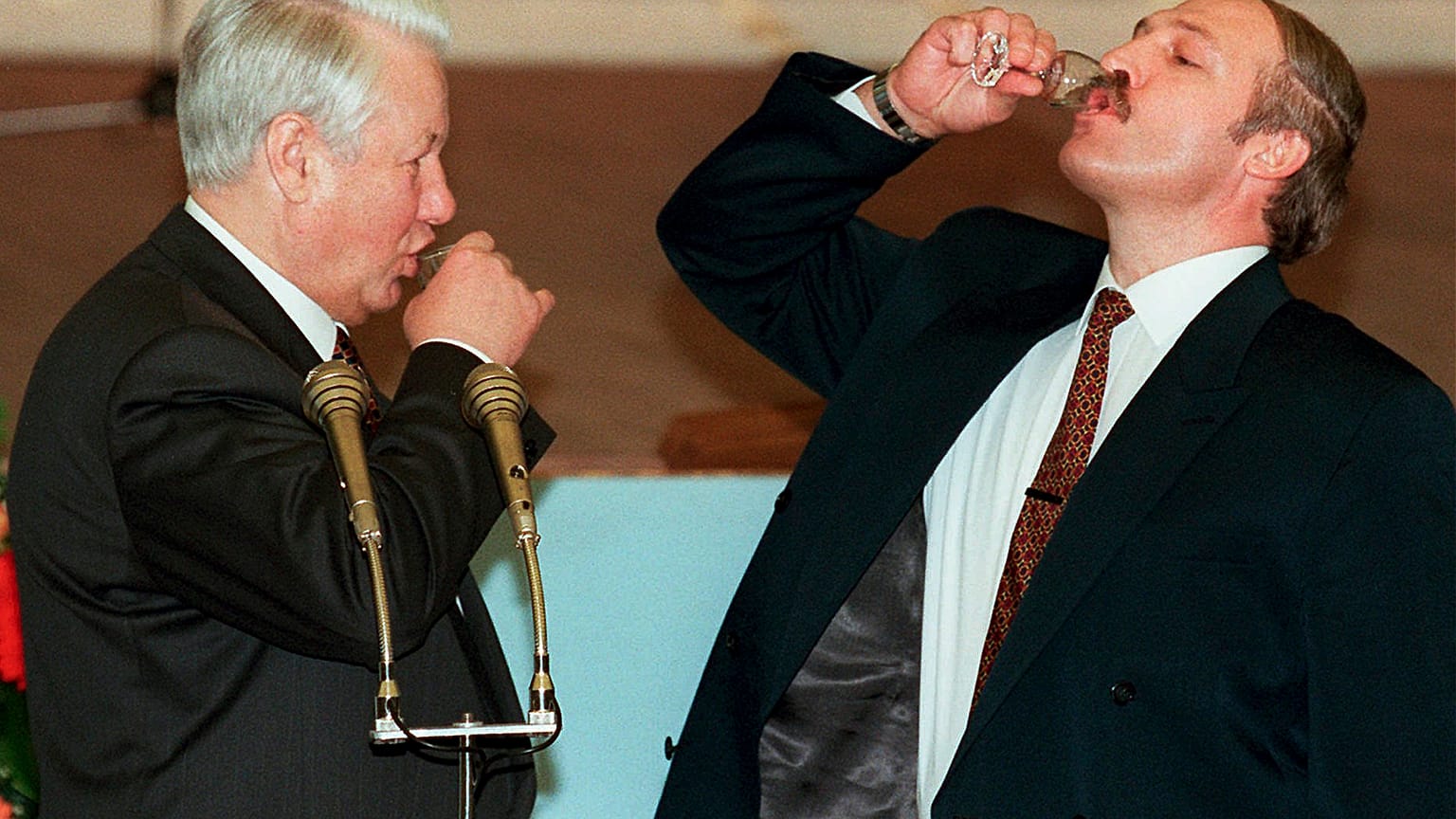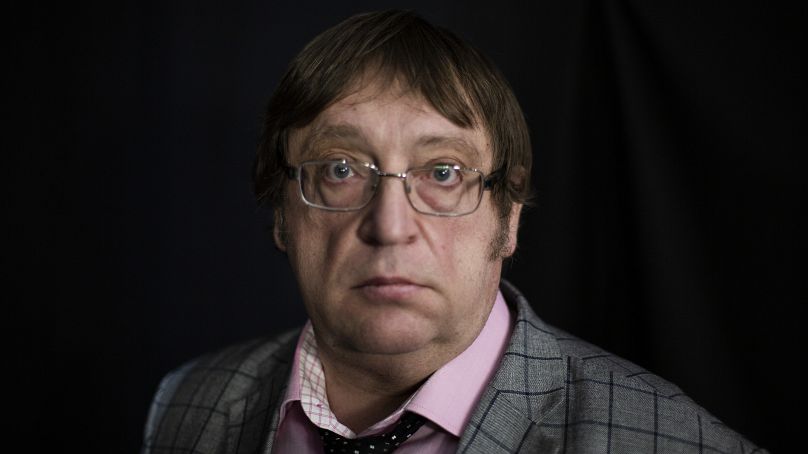Alexander Feduta worked in Lukashenko’s campaign office back in 1994 and helped to get Lukashenko elected as the new Belarusian president. Looking back, Lukashenko already had some of the traits seen later in his presidency, but they have become more profound, he says.
Alexander Lukashenko’s successful presidential campaign of 1994 had reached Gomel, the second-largest city in Belarus, when 'something magical happened.'
 ADVERTISEMENT
ADVERTISEMENT
 ADVERTISEMENT
ADVERTISEMENT
Alexander Feduta, who worked on Lukashenko’s campaign trail, says the magic occurred when he addressed a crowd of around 4,000 people in Gomel stadium.
“He talked for three and a half hours,” Feduta told Euronews, “When he took off his jacket after the speech, he was absolutely wet through, but it was like a miracle because people started to move towards him. They stretched out their arms to touch him. Some gave him their passport and even 100 dollar notes to sign. Back then, the average salary was about 30 dollars in Belarus.”
Feduta says Lukashenko was the “most talented populist” in those early days. A man who listened to the people, and called for protection after the collapse of the Soviet Union.
Extreme poverty dominated Belarus in 1994, and privatisation threatened the jobs of many workers within the massive state enterprises, explains Feduta. Lukashenko promised, “to punish those who stole their jobs.”
"I am neither with the leftists nor the rightists. But with the people against those who rob and deceive them," Lukashenko notably told The New York Times in his first election year.
'He stopped listening'
“He did not have a clear policy,” says Feduta. “Instead, he listened to what people wanted and adopted his campaign programme to fit it. He was a good listener, but after he was elected, he started to seize power and stopped listening. Now, he cannot understand why people don’t love him anymore. He thinks that people want the same thing that they wanted back in 1994. He cannot understand that things change.”
While Lukashenko dreaded the collapse of the Soviet Union, Feduta maintains he was not as ideological as people might think. He also did not understand freedom, Feduta says, because Lukashenko felt that people had a lot of freedom under the former Soviet leader Mikhail Gorbachev, but that did not help the poverty situation.
“According to Lukashenko, people needed work, a salary, and the understanding that the government will protect them. While people's outlook changed, his perception did not,” says Feduta.
Lukashenko has remained in power since his victory in 1994, but the idea that he is a man who listens to people’s needs is now not as widely held. And the mass protests that ensued after Lukashenko claimed a landslide victory, underlined that.
Exit Feduta...
After Lukashenko’s win in 1994, Feduta became head of the department of public and political information of the Presidential Administration of Belarus. However, Lukashenko had twice taken a unilateral decision to suppress the press without consulting comms chief Feduta. This resulted in scandals and he left soon after. Feduta switched camps to the opposition after finding Lukashenko "more and more authoritarian, consolidating power around himself."
Looking back, he says he could see some signs that Lukashenko would turn out the way he did, but it wasn't entirely obvious. One particular facet Feduta remembers is how Lukashenko was afraid of things that he did not understand.
“He never understood the West and was afraid of it. He thought that everyone needed someone in charge. He could not understand who the main guy in the West was.” says Feduta, “For example, he did not understand why the US needed to talk to smaller states in NATO. And it was like that with everything, if he did not understand something, he was afraid of it.”
"The Lukashenko that we can see now was already in him. Something that we thought was strength appeared to be cruelty," says Feduta.
Love, family and PR
According to Feduta, Lukashenko 'does not understand what love is.'
“He can’t understand that if a woman does not love you anymore, you will have to break up with her,” says Feduta, “He can’t imagine such as thing, and that is why that I am afraid of how he will respond to the ongoing events in Belarus. He answers with cruelty.”
Feduta appears to be being figurative here and does not elucidate on any particular relationship, but recounts that Lukashenko enlisted the help of British PR guru Timothy Bell, later Lord Bell, to help with his public image. It was around this time that the Belarusian president began taking his young son with him on public duties. Feduta recalls a conversation with a former member of Lukashenko's security detail, who told him that it was Bell's idea.
"I talked to one of his guards, not working there anymore. He said it was on the advice of the English PR guy, so that people can see that the president is able to love somebody. But then it became obvious that in order to demonstrate his love it may not have been necessary to take him on foreign trips," Feduta remembers.
Cold-hearted?
Lukashenko went to Uzbekistan immediately after he came to power in 1994. It was a state visit to President Islam Karimov and he was greeted upon his arrival with a spectacular show of young women dancing in traditional clothes.
"It was December, and the place was covered in snow, and the women were freezing in their costumes," Feduta recounts.
"At one point, the city mayor came up and asked me if he could tell Lukashenko to allow the performance to stop because the women were freezing. I passed this along to our President who stayed sitting there for a further 15 minutes. Even as the young women were freezing in front of him, he stayed. As we left, I could see people immediately covering the women with warm clothes.”
When asked whether European leaders are underestimating Lukashenko, Feduta answers, somewhat cryptically, "Europe is lucky that he is not running Russia.”















